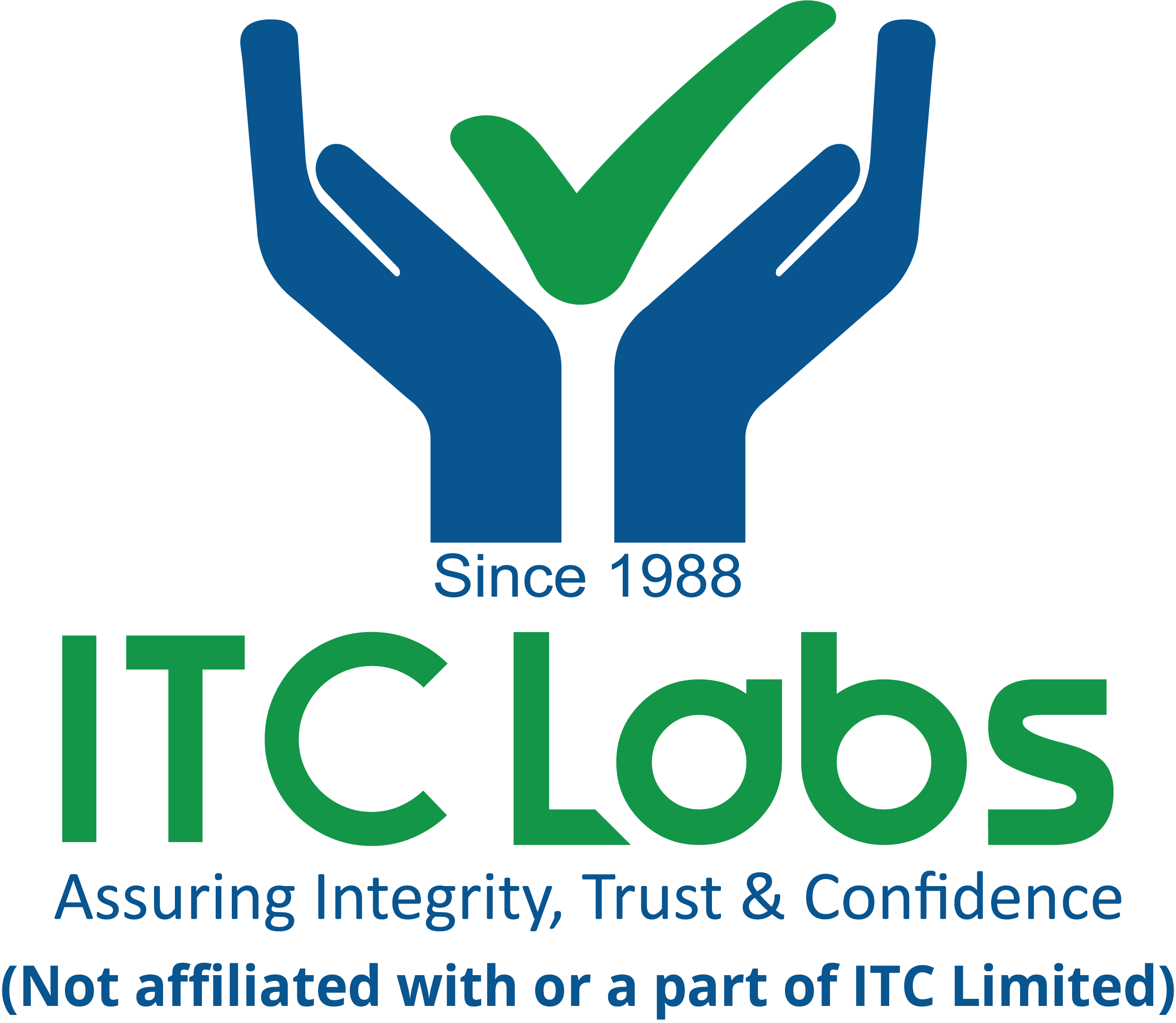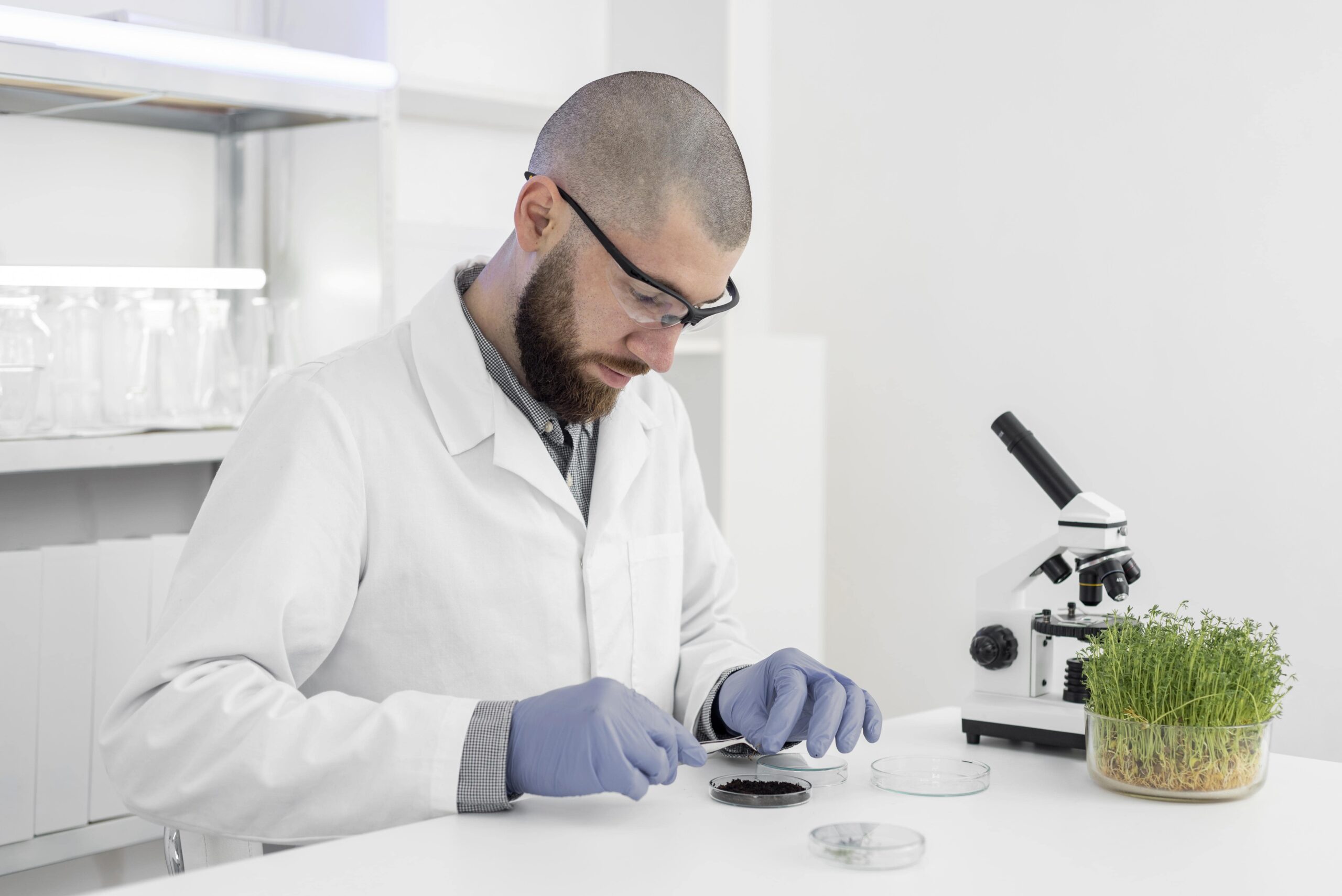Eco-friendly and regenerative farming begin with one fundamental principle: understanding your soil. Before a farmer changes cropping patterns, adopts organic inputs, or adjusts fertilizer quantities, it is essential to know what the soil actually needs. This is where choosing a reliable soil testing lab for agriculture becomes important. Soil testing provides accurate insights on nutrient levels, pH, organic matter, micronutrient deficiencies, and potential contaminants. With this information, farmers can make informed decisions that reduce environmental damage, support long-term soil health, and improve productivity. This article explains in depth how soil testing strengthens eco-friendly and regenerative farming practices, why accredited labs matter, and how professional testing services help protect natural resources.
Understanding Eco-Friendly and Regenerative Farming
Eco-friendly farming aims to minimize the negative impact of agricultural activities on the environment. It emphasizes responsible use of fertilizers, water conservation, biodiversity protection, safe waste disposal, and reduced reliance on chemicals. The focus is on farming that sustains itself without harming soil, water, or air.
Regenerative farming goes a step further by repairing soil ecosystems. Instead of simply preventing damage, it rebuilds organic carbon, enhances microbial activity, recovers degraded land, and restores the natural capacity of soil to support crops. Practices such as cover cropping, mulching, reduced tillage, green manuring, and compost application are essential elements of regenerative agriculture.
Both approaches rely heavily on accurate soil information. Without laboratory testing, even the most well-intended sustainable practices can become ineffective or counterproductive. This is where a professional soil testing lab for agriculture plays a critical role.
Why Soil Testing Is Essential for Sustainable Agriculture
Indian agriculture faces several soil-related challenges today. Over cultivation, continuous cropping, excessive fertilizer use, poor irrigation practices, and soil erosion have weakened soil health in many regions. Common issues include:
- Declining organic carbon levels
- Nutrient imbalance
- Soil compaction
- Increased salinity
- Loss of beneficial microbes
- Heavy metal contamination in some regions
- Acidic or alkaline soil conditions
- Reduced water retention
Many farmers apply fertilizers without knowing their soil’s nutrient status. This leads to waste, added expense, and environmental pollution. A reliable agriculture soil testing lab near me eliminates guesswork by providing accurate scientific data.
For example, in several districts of Maharashtra, farmers who followed soil test recommendations were able to reduce fertilizer usage by over 40 percent while improving crop yields. This demonstrates that informed decisions based on soil testing directly support environmental sustainability and long-term productivity.
How Soil Testing Strengthens Regenerative Farming
Regenerative farming is a science-driven approach, and soil testing provides the scientific foundation for it. Below are several ways soil testing contributes to regenerative agriculture.
Measuring and Improving Organic Matter
Organic matter influences soil fertility, structure, microbial activity, and water retention. Soil testing determines organic carbon percentage, which helps farmers:
- Calculate how much compost to apply
- Decide whether to use biochar or vermicompost
- Understand whether soil structure is improving over time
- Track the progress of regenerative practices
Without this data, applying organic amendments becomes guesswork.
Balancing Soil pH for Better Nutrient Uptake
The pH of soil influences how well plants absorb nutrients. For example:
- Acidic soils restrict calcium, magnesium, and phosphorus
- Alkaline soils reduce the availability of iron, zinc, and manganese
A soil testing lab for agriculture identifies pH levels and guides corrective measures. This results in more efficient nutrient use and healthier crops.
Precision Application of Organic Inputs
Even natural fertilizers must be used in the right quantities. Soil testing helps determine accurate nutrient requirements so farmers can apply:
- Compost
- Green manure
- Poultry manure
- Cow dung manure
- Biofertilizers
in scientifically correct doses. This avoids nutrient imbalance, excessive soil nitrogen, or phosphorus accumulation.
Strengthening Soil Biology
Healthy soil contains millions of microbes that support nutrient cycling, organic matter breakdown, and disease resistance. Some high-quality soil labs measure microbial biomass, organic carbon, and other biological indicators. Based on results, farmers can adopt practices such as reduced tillage, diversified crop rotation, or mulching to strengthen soil biology.
Monitoring Soil Carbon Sequestration
Increasing soil carbon is one of the main goals of regenerative agriculture. Soil testing tracks changes in carbon levels year after year. This allows farmers to measure the success of their regenerative practices.
Why NABL Accredited Labs Matter for Agricultural Soil Testing
Choosing the right laboratory is as important as testing itself. When farmers search for an agriculture soil testing lab near me, they often overlook the importance of accreditation.
NABL accreditation ensures:
- Standardized testing procedures
- Accurate and traceable results
- Use of calibrated instruments
- Skilled technicians and scientists
- Reliable, repeatable measurements
Only NABL accredited labs in India can guarantee precision that supports long-term regenerative decisions. These labs are audited regularly to maintain high-quality standards, making them trustworthy for farmers and industries.
How Analytical Testing Labs Ensure Accuracy
A professional analytical testing lab uses advanced scientific instruments that detect nutrient levels, contaminants, and soil composition with high accuracy. Some of these instruments include:
- ICP-OES for micronutrients and metals
- AAS for trace metals
- UV-Visible spectrophotometers for nutrient analysis
- Gas chromatography for organic contaminants
- Particle size analyzers for soil texture
Using such instruments ensures highly accurate data for soil pH, NPK levels, micronutrients, heavy metals, organic carbon, and moisture content. This accuracy is essential for eco-friendly farming and regenerative agriculture.
The Role of Concrete and Soil Testing in Sustainable Land Development
Sustainable agriculture is not limited to crop production. Farmers often require structures such as water storage systems, warehouses, internal roads, and borewells. The strength and safety of these structures depend on soil quality.
A lab offering concrete and soil testing ensures:
- Strong and stable foundations
- Proper load-bearing capacity
- Reduced risk of structural failure
- Better land utilization
- Minimum soil disturbance
Sustainable farming must also integrate sustainable construction practices, and professional soil and concrete testing support these efforts.
Step-by-Step: How Soil Testing Supports Regenerative Farm Planning
Step 1: Soil Sample Collection
Representative sampling ensures accurate results. Trained technicians or detailed sampling guidelines are essential.
Step 2: Laboratory Analysis
The lab tests for parameters such as pH, electrical conductivity, nitrogen, phosphorus, potassium, micronutrients, organic carbon, soil texture, and heavy metals.
Step 3: Interpretation by Experts
Experienced soil scientists interpret the data and provide actionable recommendations.
Step 4: Regenerative Action Plan
Based on results, farmers can adopt techniques such as composting, intercropping, mulching, soil moisture management, crop rotation, and cover cropping.
Step 5: Seasonal Monitoring
Regenerative farming is a continuous improvement process. Soil testing helps track progress and adjust practices accordingly.
Why Choose ITC Labs for Soil Testing and Environmental Monitoring
ITC Labs is among the most reliable and respected names for scientific testing in India. For farmers and industries looking for trusted results, ITC Labs offers several advantages.
Experienced Scientific Team
ITC Labs employs qualified and trained scientists, chemists, and environmental experts with extensive knowledge of soil chemistry, environmental regulations, and agricultural requirements.
Advanced Testing Infrastructure
The lab is equipped with modern analytical instruments including ICP-OES, AAS, gas chromatography, and UV-Visible analyzers. This ensures precise results across soil, water, air, waste, and concrete testing.
Compliance With National and Global Standards
All testing follows the EPA Act 1986, IS standards, and international benchmarks. This ensures credibility and accuracy of results.
Multi-Industry Expertise
ITC Labs serves:
- Agriculture and soil management
- Water treatment facilities
- Packaging and bottling industries
- Manufacturing and processing industries
- Environmental and safety authorities
This broad expertise ensures high-quality testing across multiple sectors.
NABL Accredited Testing
As one of the NABL accredited labs in India, ITC Labs maintains stringent quality standards, making it a reliable partner for soil testing, environmental monitoring, and industrial testing.
eLABSS LIMS for Better Turnaround Time
ITC Labs uses a dedicated Laboratory Information Management System (LIMS) that enables real-time tracking, automated reporting, and reduced turnaround time. This ensures transparency and efficiency for all customers.
A Holistic Approach to Environmental Safety
Whether it is soil health, water quality, air monitoring, or waste analysis, ITC Labs provides holistic testing services that help businesses, farmers, and industries adopt environmentally responsible practices.
Conclusion
Eco-friendly and regenerative farming depend on informed decision-making. A professional soil testing lab for agriculture provides the clarity needed to reduce chemical dependency, improve soil fertility, conserve resources, and rebuild soil ecosystems. Accurate testing is the backbone of sustainable agriculture, and choosing a reliable, accredited laboratory ensures the highest quality of results. With advanced equipment, expert staff, and strong compliance standards, ITC Labs stands out as a trusted partner for farmers, industries, and environmental organizations across India.
FAQs
1. How often should soil be tested for farming?
Once a year is recommended for general farming. For regenerative agriculture, testing once every season helps track improvements in soil health.
2. Why is NABL accreditation important for soil testing?
NABL accreditation ensures that the lab follows standardized procedures, maintains accuracy, and uses validated methods.
3. Can soil testing reduce fertilizer costs?
Yes. Soil testing helps determine exact nutrient needs, often reducing fertilizer usage by 30 to 50 percent.
4. Does soil testing help organic farmers?
Absolutely. Soil testing guides organic farmers in using compost, manure, and biofertilizers effectively.
5. What makes ITC Labs a reliable soil testing partner?
ITC Labs offers NABL accreditation, advanced instruments, experienced scientists, compliance with national standards, and efficient report delivery through its LIMS platform.


